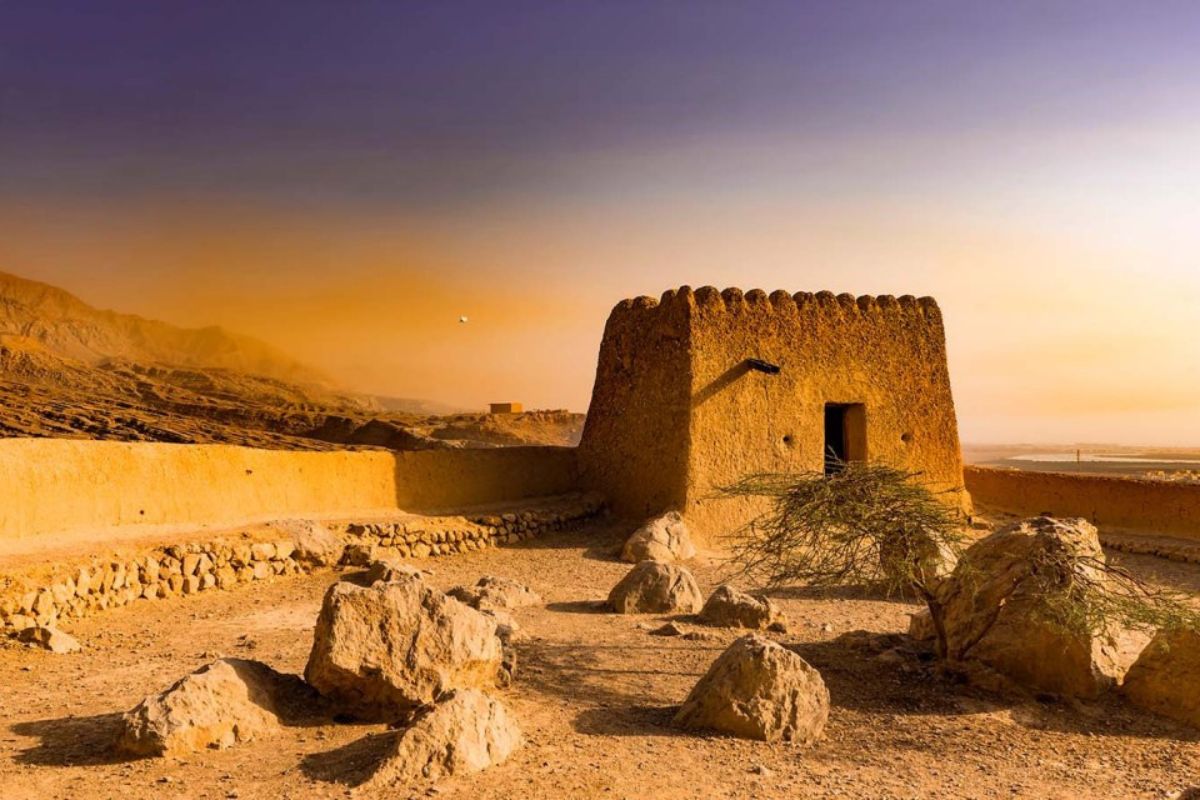
Sharjah's conquest of Ras Al Khaimah is a captivating chapter in the history of the United Arab Emirates. This event, which took place in the early 19th century, was a significant turning point for the region. The conflict between these two emirates was fueled by territorial disputes and power struggles. Ras Al Khaimah, known for its strategic location and maritime prowess, was a formidable opponent. However, Sharjah's determination and military strategy eventually led to their victory. This conquest not only reshaped the political landscape but also had lasting impacts on trade and alliances in the Gulf region. Dive into these 25 intriguing facts to uncover the details of this historic event.
Key Takeaways:
- Sharjah's conquest of Ras Al Khaimah was a big deal in UAE history! It involved battles, power struggles, and even changed the way people lived. It's like a real-life game of thrones!
- The conquest didn't just change who was in charge. It also mixed up cultures and traditions, kind of like when two different groups of friends become one big group. It's a big deal!
Sharjah's Historical Context
Understanding the Sharjah Conquest of Ras Al Khaimah requires a look into the historical backdrop of the region. Sharjah, one of the seven emirates of the UAE, has a rich history marked by trade, culture, and strategic military actions.
- Sharjah was a significant trading hub in the Persian Gulf, attracting merchants from across the world.
- The ruling Al Qasimi family played a crucial role in the political landscape of the region.
- Sharjah's strategic location made it a focal point for maritime activities and regional power struggles.
Ras Al Khaimah's Strategic Importance
Ras Al Khaimah, another emirate in the UAE, held immense strategic value due to its location and resources. This made it a target for conquest.
- Ras Al Khaimah is situated at the entrance of the Persian Gulf, making it a key maritime gateway.
- The emirate was known for its fertile lands and abundant water sources, which were rare in the region.
- Ras Al Khaimah had a strong naval presence, often clashing with other regional powers.
The Prelude to Conquest
Before the actual conquest, several events set the stage for Sharjah's military action against Ras Al Khaimah.
- Tensions between Sharjah and Ras Al Khaimah escalated due to territorial disputes.
- Both emirates had competing interests in controlling trade routes and resources.
- Diplomatic efforts to resolve conflicts failed, leading to increased hostilities.
The Conquest Unfolds
The actual conquest of Ras Al Khaimah by Sharjah was a significant military campaign with lasting impacts.
- The conquest began with a surprise naval attack by Sharjah's forces.
- Sharjah's military strategy involved blockading Ras Al Khaimah's ports to cut off supplies.
- Ground forces from Sharjah launched coordinated assaults on key fortifications in Ras Al Khaimah.
- The battle saw the use of advanced weaponry for the time, including cannons and muskets.
Key Figures in the Conquest
Several notable individuals played pivotal roles in the Sharjah Conquest of Ras Al Khaimah.
- Sheikh Sultan bin Saqr Al Qasimi, the ruler of Sharjah, led the campaign.
- Sheikh Ibrahim bin Sultan Al Qasimi, a prominent military leader, commanded Sharjah's forces.
- Local tribal leaders in Ras Al Khaimah organized resistance efforts against the invaders.
Aftermath and Consequences
The conquest had significant repercussions for both Sharjah and Ras Al Khaimah, shaping the future of the region.
- Sharjah established control over Ras Al Khaimah, consolidating its power in the region.
- The conquest led to a period of relative stability and increased trade for Sharjah.
- Ras Al Khaimah's ruling family was forced into exile, altering the political landscape.
- The conquest influenced future alliances and conflicts among the emirates.
Cultural and Social Impact
Beyond the immediate political and military outcomes, the conquest had lasting cultural and social effects.
- The integration of Ras Al Khaimah into Sharjah's domain led to cultural exchanges and intermarriages.
- Traditional practices and customs from Ras Al Khaimah influenced Sharjah's society.
- The conquest is remembered in local folklore and historical narratives, shaping regional identity.
Legacy of the Conquest
The legacy of the Sharjah Conquest of Ras Al Khaimah continues to be felt in the modern UAE.
- The event is studied in UAE history as a pivotal moment in the formation of the nation.
- Monuments and historical sites related to the conquest attract tourists and historians alike.
The Final Word on Sharjah's Conquest of Ras Al Khaimah
Sharjah's conquest of Ras Al Khaimah in 1820 marked a pivotal moment in the region's history. This event reshaped political dynamics, influenced trade routes, and left a lasting impact on the local culture. Understanding these historical events helps us appreciate the complexities of the United Arab Emirates' formation. The conquest wasn't just a battle; it was a turning point that set the stage for future alliances and conflicts. By delving into these facts, we gain a deeper insight into the resilience and strategic prowess of the people involved. This knowledge enriches our understanding of the UAE's rich heritage and underscores the importance of historical awareness. So, next time you think about the UAE, remember the significant role Sharjah's conquest of Ras Al Khaimah played in shaping the nation's history.
Frequently Asked Questions
Was this page helpful?
Our commitment to delivering trustworthy and engaging content is at the heart of what we do. Each fact on our site is contributed by real users like you, bringing a wealth of diverse insights and information. To ensure the highest standards of accuracy and reliability, our dedicated editors meticulously review each submission. This process guarantees that the facts we share are not only fascinating but also credible. Trust in our commitment to quality and authenticity as you explore and learn with us.
